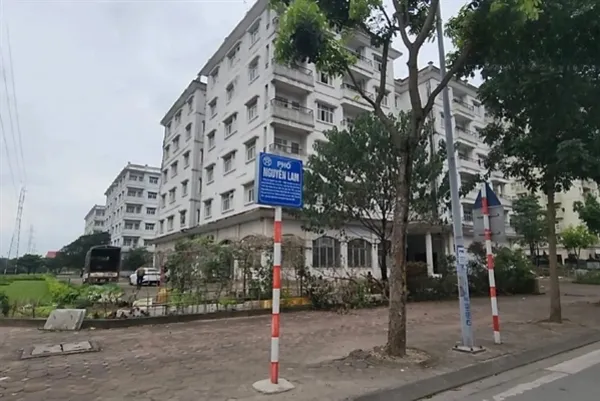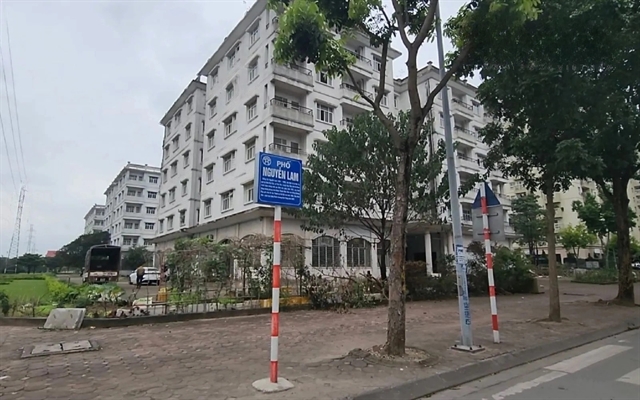 Society
Society

 |
| Three blocks of resettlement apartments in Long Biên District, Hà Nội City, have deteriorated due to being left empty for years. — Photo baotintuc.vn |
HÀ NỘI — A recent proposal to convert abandoned resettlement apartments into social housing has been met with widespread support among experts.
Nguyễn Văn Đính, deputy chairman of the Vietnam National Real Estate Association, believes that leaving resettlement housing abandoned is an enormous economic waste.
He said the idea was a win-win solution, meeting high public demand for affordable apartments and putting an end to the waste of empty buildings.
"The conversion will help bridge the supply-demand gap in the real estate market," said Đính.
However, he did raise concerns about potential obstacles to the conversion, such as the large size of some resettlement apartments, which is at odds with the 70sq.m cap on social housing.
He suggested resettlement apartments left unused for 12 months be eligible for forced conversion and oversized units be subdivided to meet the cap regulations.
Phạm Đức Toản, director-general of the EZ Property, shared that view, noting the affordability of resettlement units for average-income buyers.
He also suggested an alternative approach, auctioning off long-vacant resettlement apartments and using the proceeds to build new affordable houses.
"In big cities like Hà Nội, most resettlement apartments are public property, which requires a lot of paperwork and time for status conversion," said Toản.
"Auctioning is a quicker way to avoid the lengthy process."
However, he also noted that not all unoccupied resettlement apartments should be made convertible. He suggested reserving a portion for future resettlement needs.
Lê Hoàng Châu, chairman of the HCM City Real Estate Association, revealed that the government of HCM City had auctioned off unused resettlement apartments as a bulk buy for years.
However, he was concerned that auctioning would make the apartments less affordable as bid winners would likely convert them into commercial housing, which they will resell to high-income buyers to earn higher profits.
Economist Nguyễn Trí Hiếu called for a strategic and comprehensive approach to the conversion plan. He said a piecemeal approach, addressing issues as they arise, would never produce the desired outcomes.
He recommended that government bodies conduct surveys of current unused resettlement housing to develop a comprehensive conversion plan, including cost projections and where the finance would come from.
According to HCM City's Department of Construction, the government of HCM City will auction off more than 4,900 resettlement apartments and 42 resettlement land plots in 2024, primarily in Thủ Đức City and Bình Chánh District.
This will be the fourth auction of resettlement housing in the past seven years.
In 2017, the city held an auction for a package of nearly 3,800 resettlement apartments with a starting price of VNĐ8.8 trillion (US$345 million), but no buyers were found.
Subsequent auctions in 2018 and 2019 with starting prices of VNĐ9.1 trillion ($358 million) and VNĐ9.9 trillion ($389 million), respectively, also yielded similar results.
Châu believes that if the city continues to auction resettlement housing in a bulk single package, as it did in the past, the success rate will continue to be low because the high prices are beyond most buyers' financial ability.
"The city should divide the housing stock into smaller bidding packages for auction, which would make it easier to find buyers," Châu said.
According to the Vietnam Association of Real Estate Brokers, there are approximately 13,000 abandoned resettlement apartments in Hà Nội and HCM City. — VNS